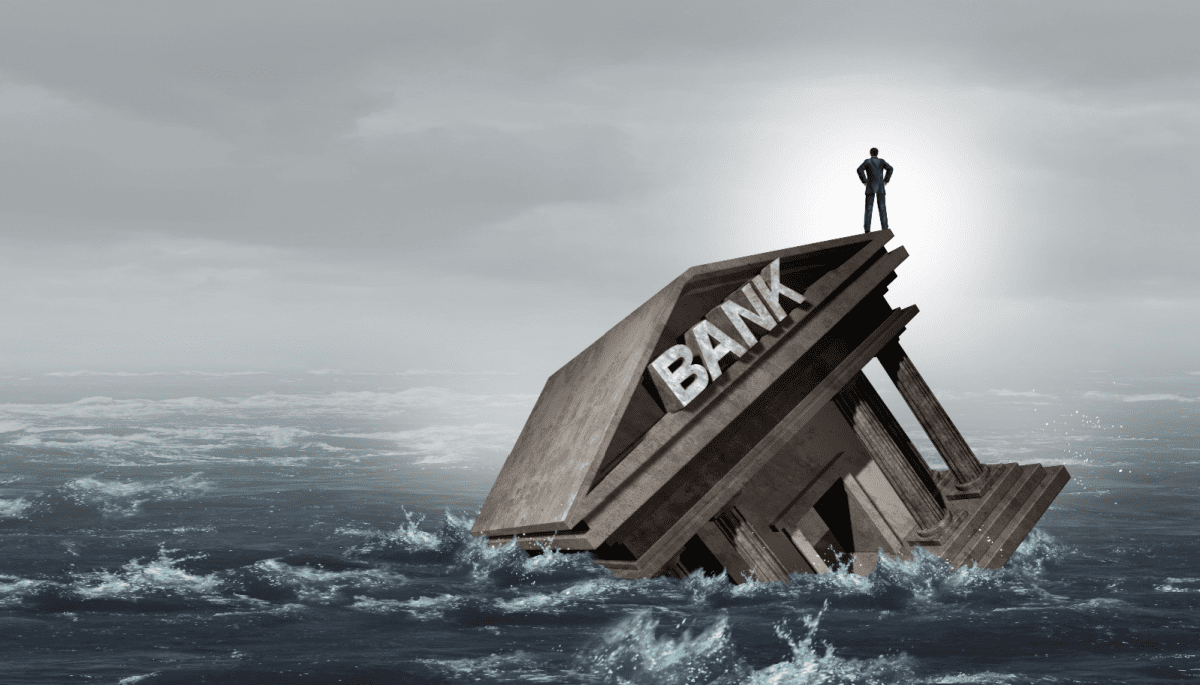Last week, season two of the banking crisis officially started. The American First Republic Bank announced that, like Silicon Valley Bank, it has been forced to sell assets at a loss. We all know by now what happened to Silicon Valley Bank, so chances are First Republic is the next victim.
In response to the news, First Republic’s stock price certainly fell through its hooves. But what else can we expect from season two of the banking crisis?
What’s going on anyway?
It is clear that more and more banks are struggling to keep their financial house in order because of the interest rate hikes of the Federal Reserve. In the space of just 12 months, the US central bank raised interest rates from around 0 to 5 percent. You cannot expect an economy that has operated on artificially low interest rates for almost 10 years to suddenly switch to a much higher interest rate.
We see the first examples of this in the form of US banks getting into trouble, although it has not been limited to the United States alone. The Swiss Credit Suisse could also no longer cope with the pressure and was forced to take over later due to competition at UBS.
In the case of First Republic, the problem is that the bank has handed out a lot of mortgages to customers in recent years. It did so when interest rates were around zero. Those mortgages therefore yield little to nothing.
Meanwhile, interest rates on US government bonds have risen to about 5 percent. Especially if you bet on short-term government bonds. In other words; investors can currently put their money in government bonds and receive an interest rate of around 5 percent on an annual basis.
So First Republic Bank has to offer its depositors a comparable interest rate to keep them. The problem is that his assets mainly consist of mortgages with extremely low interest rates. So to keep its savers on board, it has to pay 5 percent, while it receives only 1 to 2 percent from mortgage borrowers.
In short, the US Federal Reserve’s aggressive interest rate hikes, which are designed to bring inflation under control, are causing savers to withdraw their money from banks en masse and invest it in things like government bonds. After all, they receive an interest of 4 to 5 percent. Apple is now also participating in that party by offering savings accounts with an interest rate of 4.15 percent.
This resulted in First Republic Bank losing 100 million in deposits in the first quarter of 2023 and is currently in deep trouble.
What does this mean for bitcoin?
It is currently still difficult to say what exactly this means for bitcoin (BTC). However, the problems at First Republic Bank, and the banking crisis in general, make it clear that the economy is having a hard time absorbing the Federal Reserve’s rate hikes. We are getting closer and closer to the point where the Federal Reserve needs to step on the brakes.
If the US government fails to find a buyer for First Republic (read: a major bank) this weekend, the Federal Reserve will probably have to step in. Freely translated, intervention means that the ‘money printers’ have to turn on again to provide the troubled bank with liquidity (fresh capital) to keep the operation running.
We are getting closer and closer to the point where the rate hike situation becomes unsustainable. The Federal Reserve is trying to push it as far as possible to bring inflation down to the 2.0 percent target. But the system squeaks and creaks on all sides. In addition to the banking crisis, there is currently also fear of a crisis in the commercial real estate sector.
Taken together, these problems (plus high interest rates) are making it increasingly difficult for the US economy to access credit. This could possibly lead to a new credit crisis. For that reason, I expect it will not be long before we slide into a recession. That’s why I personally invest in short-dated US Treasury bonds now.
Once the markets start to fall due to the recession and the Federal Reserve signals that it is intervening with interest rate cuts, I am willing to get back into risk assets (stocks and bitcoin).
More of this kind of content? Then subscribe to my free newsletter in which I delve deeply into these kinds of macroeconomic topics 1 to 2 times a week.
2023-04-30 19:02:42
#return #banking #crisis #bitcoin

